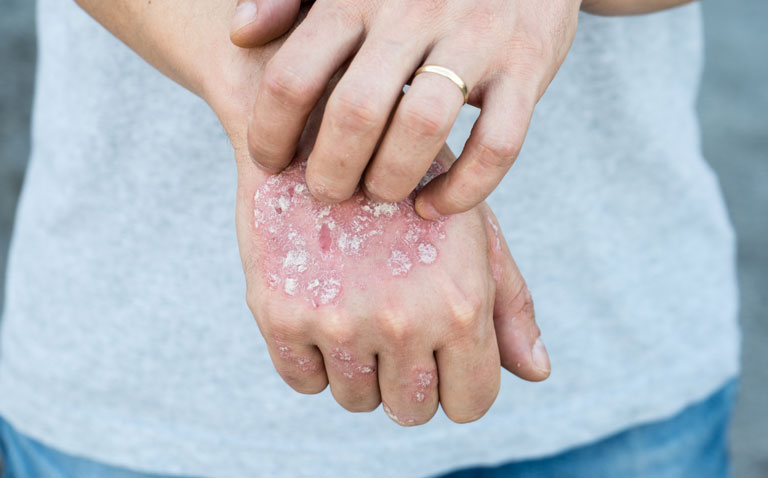A number of systemic treatments are available for plaque psoriasis but there are few direct comparative studies, making assessment of their relative effectiveness more difficult.
Psoriasis is now considered to be an immune-mediated, chronic inflammatory disease which can affect both the skin and joints. There is no cure for the disease and while treatments are able to provide satisfactory control, long-term management is required.
Although most patients have mild to moderate disease which can be controlled with topical therapies, around 20–30% of patients have moderate to severe disease, that requires systemic treatment. Oral therapies include ciclosporin, methotrexate, acitretin, apremilast and fumaric esters.
In addition, there are now several biological therapies available and which have revolutionised the treatment of more severe disease. These have been broadly categorised based on their mode of action, e.g. anti-interleukin -17 (IL-17), e.g. secukinumab, ixekizumab and brodalumab, anti-IL-12/23, e.g. ustekinumab, anti-IL-23, e.g. guselkumab and anti-tumour necrosis factor (TNF), e.g. infliximab, adalimumab, etanercept. In the absence of direct head-to-head trials, a network meta-analysis (NMA), which uses both direct and indirect information, is invaluable to identify the relative efficacy of the available treatments.
This was the method used by a team responsible for a Cochrane review of systemic treatments in psoriasis. The authors included only randomised trials in adults (18 years and over) with moderate-to-severe psoriasis in comparison to placebo and set the primary outcome as the proportion of participants achieving a psoriasis area and severity index (PASI) score of 90. The PASI is a measure of disease severity, ranging from 0 to 72 and with higher scores representing more severe disease. A PASI90 indicates that participants achieved a 90% improvement in disease severity from baseline.
Findings
The analysis included 158 studies with 57,831 participants (67.2% male) with an average age of 45 years and a mean baseline PASI of 20. At a class level, the anti-IL-17, anti-IL12/23, anti-IL23 and anti-TNF agents were all significantly more effective at achieving a PASI90 compared to the non-biologics. The NMA showed that infliximab, ixekizumab and secukinumab were the most effect biologics and with a similar clinical effectiveness.
The authors noted that a limitation was how the evaluations were limited to induction therapy, i.e., from 8 to 24 weeks after randomisation which was insufficient to assess the longer-term outcomes.
They also commented that the data did not help identify which patients were more suited to the smaller molecules and how in future pragmatic trials that involve switching between treatments, dosage adjustments, are needed to evaluate these drugs in clinical practice.
Citation
Sbidian E et al. Systemic pharmacological treatments for chronic plaque psoriasis: a network meta-analysis. Cochrane Database Sys Rev 2021










